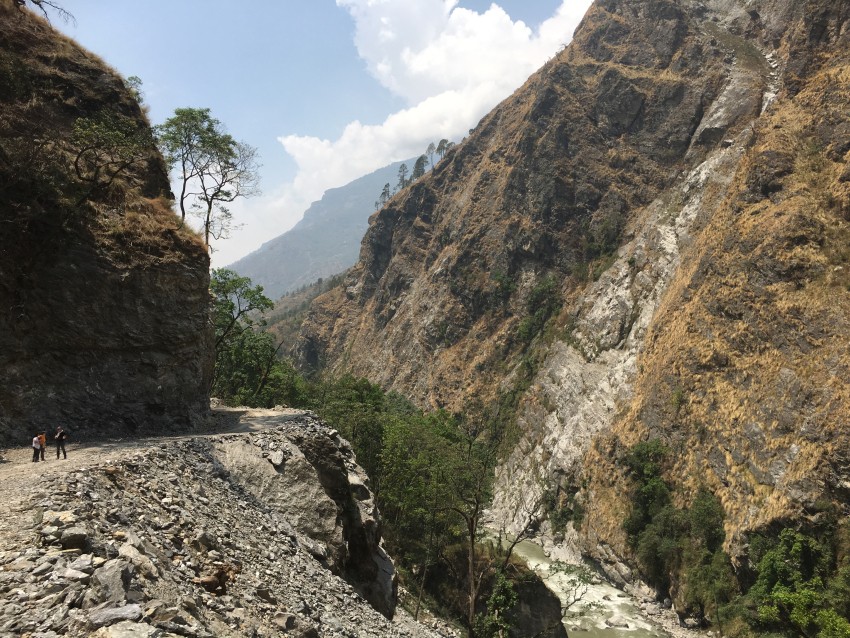FMO is contributing to a $453 million financing package that will support the construction of a landmark hydroelectric plant in central Nepal.
IFC, a member of the World Bank Group, is the lead arranger of the debt package, which includes eight other lenders, and is one of the largest foreign direct investments in Nepal’s history. The plant will increase Nepal's electricity supply by one-third from today’s levels and provide clean, reliable power to some nine million people.
The financing is being provided to the privately-owned Nepal Water and Energy Development Company. The firm will develop and operate a 216 MW, run-of-the-river hydroelectric plant on the Trishuli River about 70 km north of Kathmandu. Officially known as Upper Trishuli-1, the project’s financing structure, competitive tariffs, and use of internationally accepted contract standards provides a model for future hydropower projects in Nepal.

"This project is a game-changer for Nepal," said Barshaman Pun, Nepal’s Minister of Energy. "Not only will it power hundreds of thousands of homes and businesses, but it will also serve as an of example of how private companies can help Nepal expand its hydropower sector and attract much needed foreign direct investment."
Nepal's rivers, fed by runoff from the Himalaya Mountains, could support 43 gigawatts of electrical generation capacity. But less than three percent of that has been developed. As well, the country has suffered from blackouts and brownouts, hampering businesses and making life difficult for residents.
"There is no question that Nepal has the potential to be an energy powerhouse," said Bo-Seuk Yi, the CEO of the Nepal Water and Energy Development Company. "To realize that promise, Nepal can enlist the help of private companies, which have the capital and expertise to make major projects a reality."
Linda Broekhuizen, Chief Investment Officer at FMO said: “We are delighted to reach this milestone on Upper Trishuli-1 along with our partner institutions, the client and the government of Nepal. There have been several setbacks on this journey, worst of all the devastating earthquake in 2015 which affected local communities as well as project staff severely. It is wonderful to see where the project is now, poised to be a much-needed role model in Nepal, tackling its severe energy shortages. Many technical, financial and environmental innovations enabled the project to come to fruition. The project has a robust Free Prior Informed Consent (FPIC) process at its heart, which ensured meaningful engagement with the indigenous population prior to construction. The project is set to deliver key benefits prioritized by the local communities, including local employment and upskilling, as well as founding an institution to help preserve the Tamang way of life and propagate their beliefs among future generations.”
The new hydroelectric plant is expected to be completed in 2024. Along with providing clean, reliable power to millions, it will set new environmental and social-impact benchmarks and enhance benefits for local communities. Furthermore, a cumulative impact assessment of existing and planned hydropower projects has been completed for the Trishuli basin, which will help guide sustainable development in the watershed.
Mengistu Alemayehu, IFC Director for South Asia, said: “This project represents a significant milestone in the development of Nepal’s hydropower potential as it has been able to attract meaningful private sector participation, particularly from international investors. It also shows the unprecedented resilience and commitment by the government, the sponsors, and other stakeholders against all odds over the years, including a major earthquake. We expect this project to become a model for expanded investments in developing Nepal’s hydropower to meet the growing domestic demand and export to the neighboring countries.”
Other financiers include the Export and Import Bank of Korea, the Asian Development Bank, the Asian Infrastructure and Investment Bank, the Korea Development Bank, CDC (the United Kingdom’s development finance institution), The OPEC Fund for International Development (the OPEC Fund) and Proparco.




